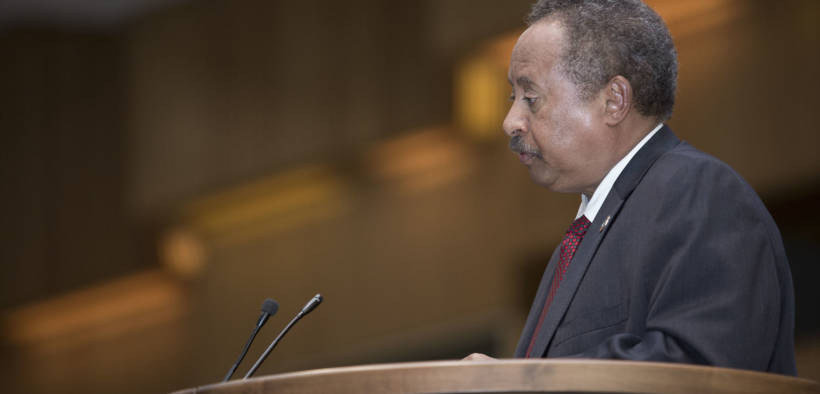A Christmas Public Holiday In Sudan For The First Time In Decades

“We are not Muslims, we are not Christians, we are not Arabs, we are not Africans, we are Sudanese.” – Secretary General of Sudan’s Council of Churches, Father William Deng
For the first time in decades, the Ministry of Endowment and Religious Affairs in the Muslim-majority Sudan declared Wednesday a public holiday in the country, officially recognizing Christmas based on the western calendar.
A statement, issued by the Sudanese Transitional Government, read: “Wednesday, will be a public holiday, all over the country, marking the Christmas Eve, based on the Christian western calendar.”
Nasrelldin Mufreh, Sudanese Minister of Endowment and Religious Affairs, said “The decision to mark the Christmas is aimed at promoting tolerance and peace among followers of the different faiths and reinforcing freedoms, throughout the country,” the Arabic-language Sudan Fox News website reported.
Reacting to a recent US decision to remove Sudan form the list of countries that repress religious freedoms, Mufreh was quoted by the Voice of America as saying ” “We really thank them for recognizing our efforts toward respecting freedom of worship in Sudan. They have now realized that we are a civilian government after the revolution of the great Sudanese people,”
Prior to the independence of the Christians-majority South Sudan in 2011, the central government of the capital Khartoum under the recently-deposed president, Omar Albashir, allowed local Christian government employees and students to get a three-day paid holiday for the Christmas.
Yet, with the declaration of the state of South Sudan, the capital Khartoum reversed the said special offers, citing the fact that more than 95 percent of the population are not Christians.
Leading Sudanese writer and researcher Shauqi Abdeladeem told the Middle Easy News Agency that he believed “such a decision would greatly help both Christians and Muslims of Sudan to respect each other.”
He added that it would create an atmosphere of reconciliation and peaceful coexistence between Christians and Muslims.
Sudanese Christians Satisfied
In response to the new Sudanese government’s declaration, Secretary General of Sudan’s Council of Churches, Father William Deng, told VOA that the public holiday is a proper thing to declare because it grants freedoms and rights to the Sudanese society and would allow all inhabitants to engage in rebuilding the country following 30 years of the Albashir’s authoritarian rule.
Deng further noted: “We are not Muslims, we are not Christians, we are not Arabs, we are not Africans, we are Sudanese”.
Other residents of the capital Khartoum expressed their applause of the decision. VOA quoted Muslim resident Imman Kamaludeen as saying “All groups need to enjoy freedom of worship and the latest decision to allow a public holiday for Christmas is something good and would signal that our government is respecting freedom of worship.”
Another Christian resident, Clara Ismael, told VOA that “this is worthy honoring and we are really thankful for the transitional government of Sudan and we hope that peace prevails in our country”.
Situation In Sudan
Since last December Sudan has endured mass demonstrations in protest of the soaring prices of goods and commodities as well as inflation. The protests pushed the Sudanese army to overthrow the authoritarian President Omar al-Bashir, who had held power for more than three decades.
However, the country was in a state of chaos after the ousting of Bashir with no clear successor to lead the country. Sudan’s military assumed power, but on June 3 the military opened fire and killed more than 100 protesters outside the military’s headquarters, intensifying worry that Sudan would become a military dictatorship.
In late June and early July, the military and civilian opposition forces worked on cementing a power-sharing agreement. On July 5, the Sudanese opposition Coalition of Freedom and Change said it had reached such an agreement with the transitional military council, sparking celebration of the “birthday of joy” throughout the country.
As Sudan established a new government, Bashir sat on trial for corruption charges, though many wished for more serious charges to be levied against the former president.







